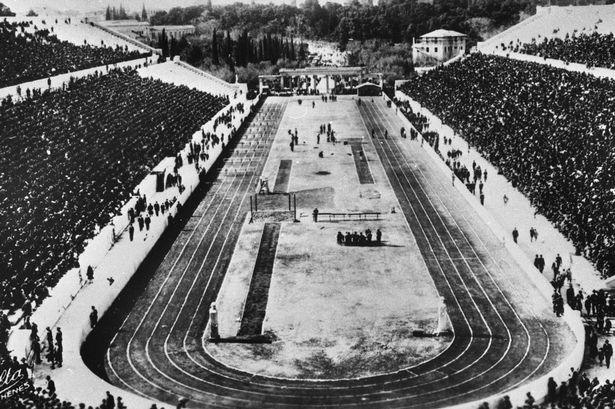
First modern Olympic Games on April 06, 1896
First modern Olympic Games On April 6, 1896, the Olympic Games, a long-lost tradition of ancient Greece, are reborn in Athens 1,500 years after being banned by Roman Emperor Theodosius I. At the opening of the Athens Games, King Georgios I of Greece and a crowd of 60,000 spectators welcomed athletes from 13 nations to the international competition.
The first recorded Olympic Games were held at Olympia in the Greek city-state of Elis in 776 B.C., but it is generally accepted that the Olympics were at least 500 years old at that time. The ancient Olympics, held every four years, occurred during a religious festival honoring the Greek god Zeus. In the eighth century B.C., contestants came from a dozen or more Greek cities, and by the fifth century B.C. from as many as 100 cities from throughout the Greek empire. Initially, Olympic competition was limited to foot races, but later a number of other events were added, including wrestling, boxing, horse and chariot racing, and military competitions.
The pentathlon, introduced in 708 B.C., consisted of a foot race, the long jump, discus and javelin throws, and wrestling. With the rise of Rome, the Olympics declined, and in 393 A.D. the Roman Emperor Theodosius I, a Christian, abolished the Games as part of his efforts to suppress paganism in the Roman Empire.
With the Renaissance, Europe began a long fascination with ancient Greek culture, and in the 18th and 19th centuries some nations staged informal sporting and folkloric festivals bearing the name “Olympic Games.” However, it was not until 1892 that a young French baron, Pierre de Coubertin, seriously proposed reviving the Olympics as a major international competition that would occur every four years. At a conference on international sport in Paris in June 1894, Coubertin again raised the idea, and the 79 delegates from nine countries unanimously approved his proposal. The International Olympic Committee (IOC) was formed, and the first Games were planned for 1896 in Athens, the capital of Greece
In Athens, 280 participants from 13 nations competed in 43 events, covering track-and-field, swimming, gymnastics, cycling, wrestling, weightlifting, fencing, shooting, and tennis. All the competitors were men, and a few of the entrants were tourists who stumbled upon the Games and were allowed to sign up. The track-and-field events were held at the Panathenaic Stadium, which was originally built in 330 B.C. and restored for the 1896 Games. Americans won nine out of 12 of these events. The 1896 Olympics also featured the first marathon competition, which followed the 25-mile route run by a Greek soldier who brought news of a victory over the Persians from Marathon to Athens in 490 B.C. In 1924, the marathon was standardized at 26 miles and 385 yards. Appropriately, a Greek, Spyridon Louis, won the first marathon at the 1896 Athens Games.
Pierre de Coubertin became IOC president in 1896 and guided the Olympic Games through its difficult early years, when it lacked much popular support and was overshadowed by world’s fairs. In 1924, the first truly successful Olympic Games were held in Paris, involving more than 3,000 athletes, including more than 100 women, from 44 nations. The first Winter Olympic Games were also held that year. In 1925, Coubertin retired. The Olympic Games have come to be regarded as the foremost international sports competition. At the 2000 Summer Olympics in Sydney, more than 10,000 athletes from 200 countries competed, including nearly 4,000 women. In 2004, the Summer Olympics returned to Athens, with more than 11,000 athletes competing from 202 countries. In a proud moment for Greeks and an exciting one for spectators, the shotput competition was held at the site of the classical Games in Olympia.
History Channel / Wikipedia / Britannica Encyclopedia /
Olympic.org
Olympic Games, Athens, 1896 (YouTube) 
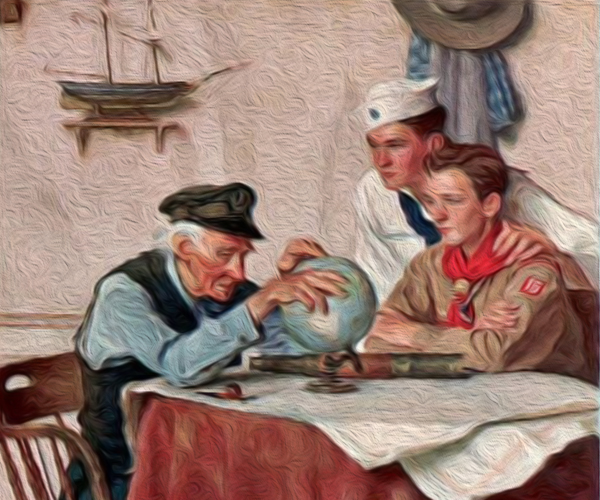
Understanding Military Terminology - Materiel requirements
(DOD) Those quantities of items of equipment and supplies necessary to equip, provide a materiel pipeline, and sustain a Service, formation, organization, or unit in the fulfillment of its purposes or tasks during a specified period. Joint Publications JP 4-09 (Distribution Operations - Defense Technical Information Center)
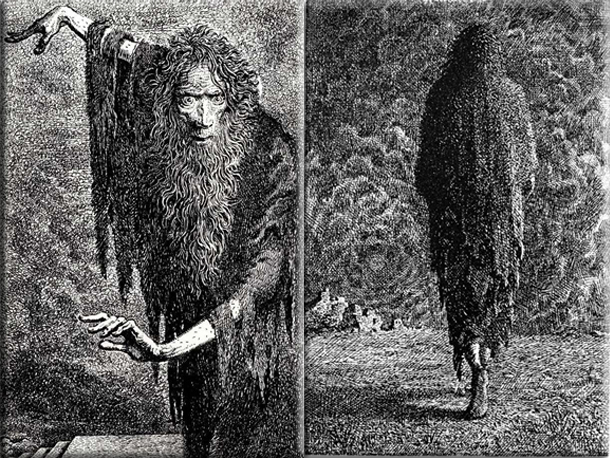
The Old Salt’s Corner
“The Rime of the Ancient Mariner”
PART VII
The Hermit of the Wood,
This Hermit good lives in that wood
Which slopes down to the sea.
How loudly his sweet voice he rears!
He loves to talk with marineres
That come from a far countree.
He kneels at morn, and noon, and eve -
He hath a cushion plump:
It is the moss that wholly hides
The rotted old oak-stump.
The skiff-boat neared: I heard them talk,
‘Why, this is strange, I trow!
Where are those lights so many and fair,
That signal made but now?’
Approacheth the ship with wonder.
continued ...
~ Samuel Taylor Coleridge
(originally published in Lyrical Ballads, 1798)
Full Poem

“I’m Just Sayin”
In economics and “property law: resource arrangements in practice can be represented in theory, such as arrangements of the commons or shared property.”
~ Ostrom's Law

“Thought for the Day”
“Be thankful for what you have;
you’ll end up having more.
If you concentrate on what you don’t have,
you will never, ever have enough.”
~ Oprah Winfrey

“What I Have Learned”
“When you point your finger at someone, three fingers are pointing back at you.”
~ Anonymous

Bizarre News (we couldn’t make up stuff this good – real news story)

Man gains new life after losing 140-pound tumo
An antiques store owner from Mississippi who doctors had dismissed as “just fat” has had a 130 pound tumor removed from his lower abdomen.
For more than 12 years, Roger Logan said physicians put the non-cancerous growth that dangled from his midsection down to obesity.
“They said it’s just fat, you’re just fat.”
As the tumor grew, Logan’s quality of life declined until he was confined to an armchair at his Gulfport home. He was unable to run his store or even go fishing, reports The Bakersfield Californian.
The Bakersfield Californian / ABC Bakersfield, California (02/06/2017) 

Mr. Answer Man Please Tell Us: How Does the Restroom in the International Space Station Work?
The absence of gravitational acceleration makes things a bit different.
The first thing an astronaut has to do is make sure he or she is seated properly. You can't just sit down in space, since there is no down. So, you'll notice there are straps to hold their feet so they won't float away, mid-use.
The next thing the astronaut has to do is make sure they are aligned correctly. There is actually a camera that looks up from the toilet so the crew member can make sure they are oriented properly.
Relieving oneself is not that different. It's a little different because on Earth gravity does play a role by pulling things down, but much of the movement of fluids and solids is initiated by muscles within the body.
Here's where it gets really different: To replace the force of gravity to ensure waste goes down into the toilet, there is actually a vacuum hose that sucks the waste.
Urine is actually collected and then processed through a device that purifies the urine and converts it back into drinking water.
If the toilet is not working, one has to go into a baggy that has ampules that can be crushed to chemically react with the waste to prevent things like off-gassing and bacterial growth.
The bright side is that because of both changes in digestion and foods eaten, astronauts do not have to go to the bathroom as often as we do on Earth.
Gizmodo
• Forbes
• How Stuff Works Science
• Mental Floss
• NASA
• Quora
• Wikipedia

Where Did That Saying Come From?
“Cold Feet:” Meaning: To show reluctance - to become disheartened or timid, losing one's previous enthusiasm or courage.
Origin: It’s a military term.
A man who has cold or frozen feet - a common affliction until the late 19th century - can’t rush into battle, and so proceeds slowly.
Phrases.org UK


NAVSPEAK aka U.S. Navy Slang
Numb Nuts: (Derogatory) Nick Name for the USS Nimitz (CVN68).
Nut to butt: Standing in line, close quarters, body to body, each man's chest pressed to the back of the man ahead, or “nut to butt”.


Just for you MARINE
Paradise Island: Nickname for Marine Corps Recruit Depot Parris Island.
Passageway: Corridor or hallway.
Passed over: Having failed selection for the next higher rank (for SNCOs and officers).
Pay Grade: DOD system of designating a U.S. serviceperson's pay (E-1 through E-9, W-1 through W-5, and O-1 through O-10), not to be confused with rank (though the two usually correspond) or billet.

Naval Aviation Squadron Nicknames
HT-8 - Helicopter Training Squadrons: “Eightballers”
Formerly HTU-1, HTG-1 TRAWING 5, Established December 3rd 1950 - Naval Air Station Whiting Field, Santa Rosa County near Milton, Florida

Science & Technology

How do you build a robot army?
• What could happen if you refuse to unlock your phone at the US border?
• Twitter to judge: Let us tell everyone exactly how many secret orders we get
• HP Spectre x360 15 review: A large convertible that’s easy to love
• These tiny beetles have evolved to ride ants like horses
• Internet service providers (ISP) ask lawmakers to kill privacy rules, and they’re happily obliging
• The new Mclaren 720S will do the standing quarter-mile in 10.3 seconds
ARS Technica

The Strange, Mysterious or Downright Weird
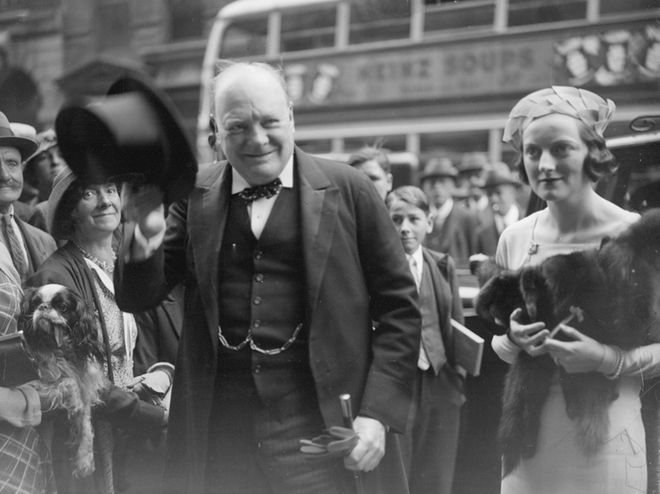
Winston Churchill was known for his leadership during World War II, but a newfound essay on alien life reveals another side of him, one that was deeply curious about the universe.
“I, for one, am not so immensely impressed by the success we are making of our civilization here that I am prepared to think we are the only spot in this immense universe which contains living, thinking creatures”, he wrote in the newly uncovered essay, “or that we are the highest type of mental and physical development which has ever appeared in the vast compass of space and time.”
Besides being prime minister of the United Kingdom during the tumultuous years of World War II, the British statesman was also a prolific writer and proponent of science. In fact, he was the first prime minister to have a science advisor. Those traits converged in the newfound 11-page essay about the search for alien life, discovered at the Churchill Museum in Fulton, Missouri. It was first written in 1939 and was slightly revised in the late 1950s. [5 Bold Claims of Alien Life]
“When he discussed the possibility of traveling to other planets and things like that, he says, well maybe this isn't possible today but, he says, 'It is rash to set limits to the progress of science'”, Livio said. “Things that are not possible today, you shouldn't think that they would not be possible in the future.”
Live Science (02/15/2017) 


SONG FACTS

“Roundabout” - Yes
Album: Fragile
Released 1971 
This was Yes' breakthrough hit and one of their most well-known songs, but the band wasn't looking for a hit at the time. The album version runs 8:29, but it was edited to 3:27 for release as a single, which climbed to #13 on the US Hot 100, giving the band their biggest hit until they eclipsed it with "Owner Of A Lonely Heart" in 1983.
In an interview with Jon Anderson, he explained: “When we first heard the 'Roundabout' single, it was on the radio. We didn't know it was released. We were busy being a band on the road, and then we heard the edit and we thought, 'Wow, that must have been a big pair of scissors to edit that song.' I mean, it was just totally wrong musically. It actually worked and all of a sudden we became famous, we had a hit record and more people came to see us, which was great, because then they would see the progression of music we'd been doing and they'd see us more as a band and not just wait for 'Roundabout.' Because we didn't do that 'Roundabout' in those days. We did the 8-minute version.”
Yes lead singer Jon Anderson and guitarist Steve Howe wrote this song near the end of a tour when they were traveling in Scotland. They were in the back of a van going from Aberdeen to Glasgow when the song came together. Awed by the scenery, Anderson came up with lyrics like “Mountains come out of the sky and they stand there”, as the mountains would disappear into the clouds.
The lyrics describe a psychedelic-country life, with allusions to driving. A roundabout is a kind of traffic circle that substitutes for a stoplight and confounds tourists who are unfamiliar with them. Traffic patterns don't always make the most poetic lyrics, but the word “Roundabout” sings very well and fits with the theme of the song, as when Jon Anderson came to a roundabout in Scotland, he knew that he was almost home.
Glen Burtnik, who wrote several Styx songs when he was with the band and also co-wrote the songs “Sometimes Love Just Ain't Enough”  and “Spirit of a Boy, Wisdom of a Man”
and “Spirit of a Boy, Wisdom of a Man”  , tells us that “Roundabout” is a great example of a songwriting technique called “deceptive cadence”, which means putting a note or chord where it is not expected. Says Glen: “Even though all the indications lead you to expecting a certain outcome, the writer/arranger intentionally surprises you by going someplace else musically.” Another example of this technique is “A Day In The Life”
, tells us that “Roundabout” is a great example of a songwriting technique called “deceptive cadence”, which means putting a note or chord where it is not expected. Says Glen: “Even though all the indications lead you to expecting a certain outcome, the writer/arranger intentionally surprises you by going someplace else musically.” Another example of this technique is “A Day In The Life”  by The Beatles.
by The Beatles.
This song is known as a showcase for the musicianship of Yes, notably the keyboard work of Rick Wakeman and the acoustic guitar intro played by Howe. Fragile was Wakeman's first album with the band. Anderson says it's a “happy song” and describes it as a “Scottish jig”.
Yes, official site / Billboard / All Music / Song Facts / Ultimate Classic Rock / Wikipedia
Image: “Fragile (album)” by Yes
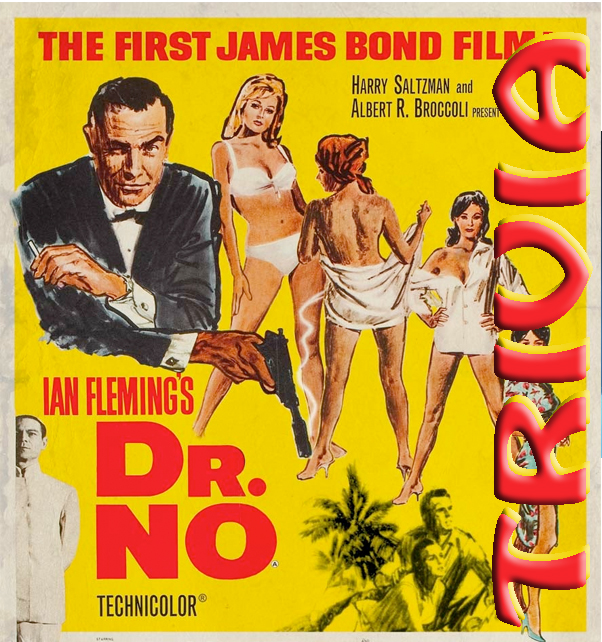
Trivia
● The first James Bond film was released in 1962, starred Sean Connery, and included the name of a profession in the title - DR. NO.
● At the end of the film, The Wizard of Oz, Dorothy clicks her heels and recites “There's No Place Like Home!”
● Considered the social and academic equivalent of the Ivy League colleges, the Seven Sisters Colleges, set up in 1915, were among the pioneers in higher education for women in the United States. These colleges are Mount Holyoke, Barnard, Bryn Mawr, Smith, Vassar, Wellesley.

A Test for People Who Know Everything
Dashlane is an app to manage all “these things”, and keep straight through online security capabilities with encryption - what are “these things”?
● Answer for People Who Do Not Know Everything, or Want to Verify Their Answer AppAdvice
Answer to Last Week's Test
What was the original name for the Lewis and Clark expedition?
Answer: Corps of Discovery - Lewis and Clark Expedition that took place between May 1804 and September 1806. National Archives

Joke of the Day
First golfer: “I have the greatest golf ball in the world. You can’t lose it.”
Second golfer: “How so?”
First golfer: “If you hit it into the sand, it beeps. You hit it into the water, it floats. If you want to play golf at night it glows.”
Second golfer: “Hey, sounds good. Where did you get it?”
First golfer: “I found it in the woods.”
Pun of the Day
An argument at the Bomb Squad convention ended in a blowup.


























